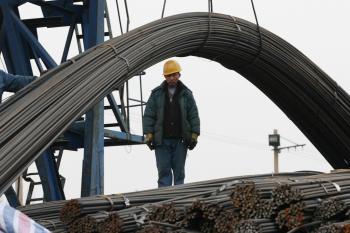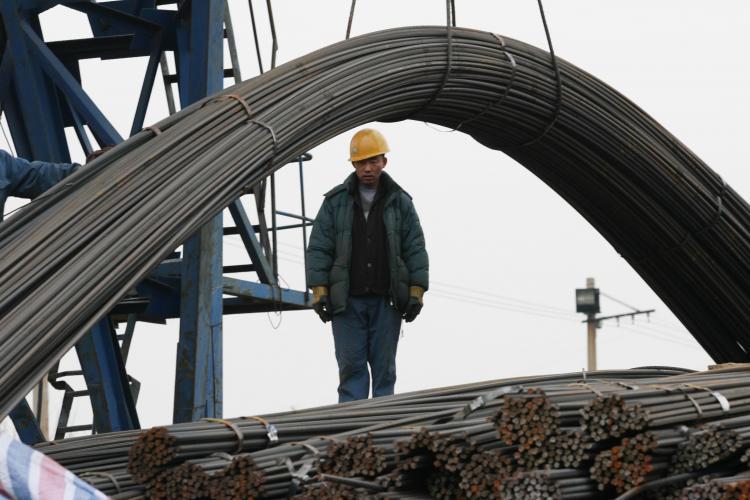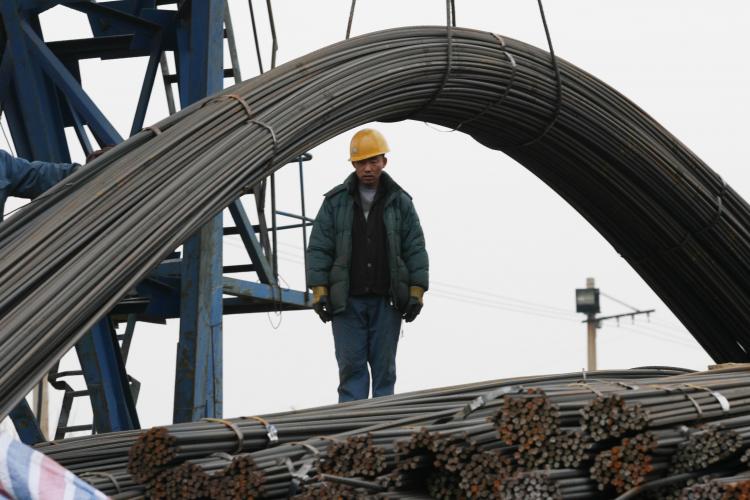Days after the arrest of a top Rio Tinto executive, the Chinese communist regime has tried to prevent the screening of a film about a Chinese Uyghur Muslim activist, premiering at Australia’s largest film festival.
Richard Moore, executive director of the Melbourne International Film Festival (MIFF) said he had been contacted by Chunmei Chen, the cultural attache from the Chinese Consulate in Melbourne, and told not to screen a documentary about Rebiya Kadeer, a successful businesswoman and the leader of the World Uyghur Congress.
The Chinese regime is blaming Ms. Kadeer for last weeks protests in the Xinjiang province, which officials say has resulted in over 180 dead—the Uyghur community says the death toll is much higher. Urumqi, the capital, is in total lockdown.
Richard Moore, the executive director of MIFF, said Ms. Chen had been insistent that he should not screen the documentary titled Ten Conditions of Love.
“She told me that she was ringing to urge me to withdraw the particular film Ten Conditions Of Love from the festival,” Mr. Moore told the Australian national broadcaster, the ABC.
“I said I had no reason to withdraw the film from the festival and she then proceeded to tell me that I had to justify my decision to include the film.
“I said, ‘Well, I’m very sorry but I didn’t have any reason to justify the inclusion of the film in the festival.’ So she then proceeded to ... list Rebiya Kadeer’s ‘crimes.’”
Mr. Moore said that after five minutes of listening to Ms. Chen he “blanked out”.
The documentary reveals the difficulties endured by Ms. Kadeer and her activist husband, Sidik Rouzi, in their campaign for autonomy for the Uyghur people in China. Two of Ms. Kadeer’s 11 children have been jailed as a result of her campaign.
Mr. Moore said Ms. Chen had also tried to stop organizers from including Ms. Kadeer as a guest speaker at the festival.
“She was very unhappy that Rebiya Kadeer is coming here as a guest,“ he said. ”It wasn’t threats ... she was just continually insistent that the film should not be included in the festival.
“She plainly wasn’t happy [the festival will continue as planned] and, I had to tell her that I could no longer continue the conversation because I'd already expressed my opinion, so I politely hung up.”
Australian politicians and officials are not unfamiliar with the behavior of Chinese diplomats who regularly break diplomatic protocol by interfering in Australian domestic events.
In 2008, before the Beijing Olympics, Australian politicians who were invited to attend events surrounding the Human Rights Torch Relay were showered with letters from Chinese consulates telling them not to attend the event.
Steve Dickson, a member of Queensland’s state parliament told participants in a rally outside Brisbane that he had lost two uncles in World War II fighting for freedom of speech and democracy.
“And the reality is, when somebody sends me a letter from a foreign country telling me not to go and speak at a human rights rally,“ he said. ”it was like telling me not to push a red button when I was a kid. I just had to push it, and I had to go, and I had to speak!”
Rio Tinto arrest
News of the interference in MIFF will not help perceptions of Chinese authorities with the Australian public already shocked by the accusation of espionage against Australian citizen, Stern Hu, a senior executive for Anglo-Australian mining giant, Rio Tinto.
Mr. Hu, along with three other Rio employees, was arrested on July 5 and was accused the following week in state-run newspaper, the China Daily, of bribing executives of 16 Chinese steel mills.
Australian Prime Minister, Kevin Rudd, has spoken out strongly in defense of Mr. Hu, who is well respected in both Chinese and Australian business circles. Mr. Rudd said, “The well-being of any Australian citizen” is of primary concern.
Mr. Rudd said governments and corporations from around the world would be taking a keen interest in what happens to Mr Hu.
“Australia, of course, has significant economic interests with its relationship with China, but I also remind our Chinese friends that China too has significant economic interests at stake in its relationship with Australia and with its other commercial partners around the world,” he said.
“A range of foreign governments and corporations will be watching this case with interest and will be watching it very closely, and they will be drawing their own conclusions as to how it is conducted.”
The U.S. concerned
The United States has indicated it is watching events closely with Commerce Secretary Gary Locke saying that it was “a great concern with respect to U.S. investors, multinational companies from around the world that have projects here, that are involved in energy.
“We need to have transparency, we need to have assurances and confidence that people working for these multinational companies, international companies, American companies will be treated fairly,” he said in The Wall Street Journal.
Mr. Locke, who is presently in China, said he would raise the issue with Chinese Premier Wen Jiabao.






